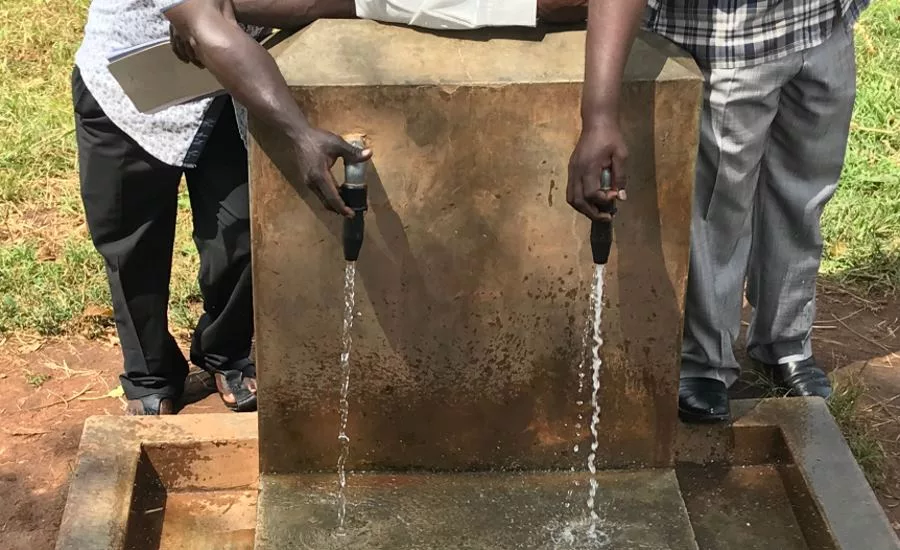Franklin Electric’s Foundation Completes Clean Water Projects in Africa
Projects in Three Countries Benefit 18,000 People

In 2017, Franklin Electric's Franklin Wells for the World Foundation put forth continued effort toward its mission to provide safe, reliable and cost-effective water supplies to suffering communities, focusing on Africa where the need is greatest. Searching for potable water sources is a daily chore for over 2 billion women and children across the globe. In what is sometimes described as a “six-hour journey,” predominantly girls spend hours each day hauling water from pumps and basins to their homes and communities – rather than attend school. These children, who are consistently exposed to hazardous, unpotable water sources that have been contaminated by water-borne bacteria, contract diseases such as cholera and life-threatening diarrhea.
Last year, leveraging Franklin Electric’s products, the Franklin Wells for the World Foundation completed the following projects in three countries in southern Africa, benefiting the lives of nearly 18,000 people:
Jabulani Camp, Ladysmith, South Africa: Jabulani Camp is an organization that operates with community project managers, community facilitators and community-based volunteers. They train women and youth groups, focusing on 16 schools, which reaches 3,200 teenagers in poor communities, and on 2,000 women, who care for 10,000 family members in local communities. They have community gardens, each with 10-20 members, supplying food for 50-100 family members. Due to three years of drought, their existing well ran dry. While rain has picked back up, the water supply had yet to replenish.
Chimwara Co-Operative School, Zimbabwe: The Chimwara School was formed by the community in 2001 due to the lack of any schools in the area and the nearest Government institution being 28 miles away. Chimwara is run and managed by the community and parents. The school covers grades 1 through 7. Funding of all books and literature is provided by the community from crop production and livestock sales. The school previously had a well run by a non-efficient, gas generator that could only be used when funds were available for fuel, as well as one electrical pump situated far from the community that was extremely expensive to maintain.
Molo Primary School, Tororo District, Uganda: Molo Primary School was founded in 1936. The original shelter used was grass thatched, but later in 1953, was replaced with a four-classroom block. Currently, the school has five classroom blocks with a total of 11 classrooms, two offices, a store and a nursery. Previously, their nearest source of water for the school was a community well with a hand pump more than a half-mile away, from which the entire community of about 6,000 people collected water.
Tuba Primary School, Tororo District, Uganda: Tuba Primary School was founded in 1942. The school has 11 qualified teachers and over 650 students. The population for the Tuba community (Kiporo Zone) is estimated at 3,500. Tuba Primary School is located 10 miles away, and their previous water supply was an inadequate borehole with a hand pump more than 650 feet away.
Ssaayi Bright Primary School, Saayi Wakiso District, Uganda: Ssaayi Bright Primary School was founded in 1966, and currently consists of 10 teachers and 300 students. The community and parents grow fruit and vegetables around the school to supplement the students and teachers. The previous source of water for the school was a hand-dug shallow well located approximately a half-mile away and containing contaminated water. School children and teachers had to leave over an hour early to retrieve water before school, which greatly affected school attendance.
For more information on the Franklin Wells for the World Foundation, visit https://franklin-electric.com/company/wells-for-the-world/.
Franklin Electric offers an array of systems and components for moving water and automotive fuels. It serves residential, commercial, agricultural, industrial and municipal customers around the world. For more information, visit www.franklinwater.com.
Looking for a reprint of this article?
From high-res PDFs to custom plaques, order your copy today!



